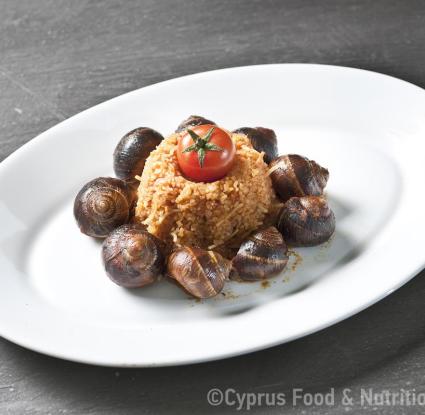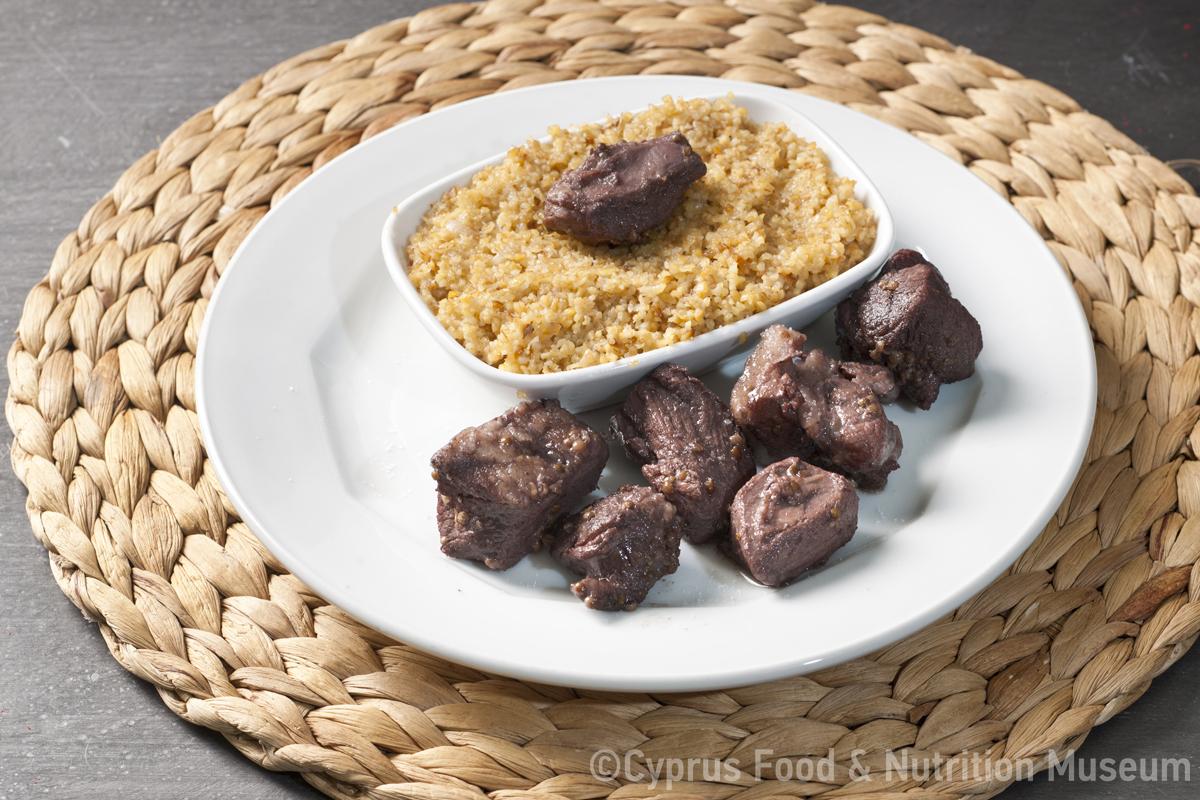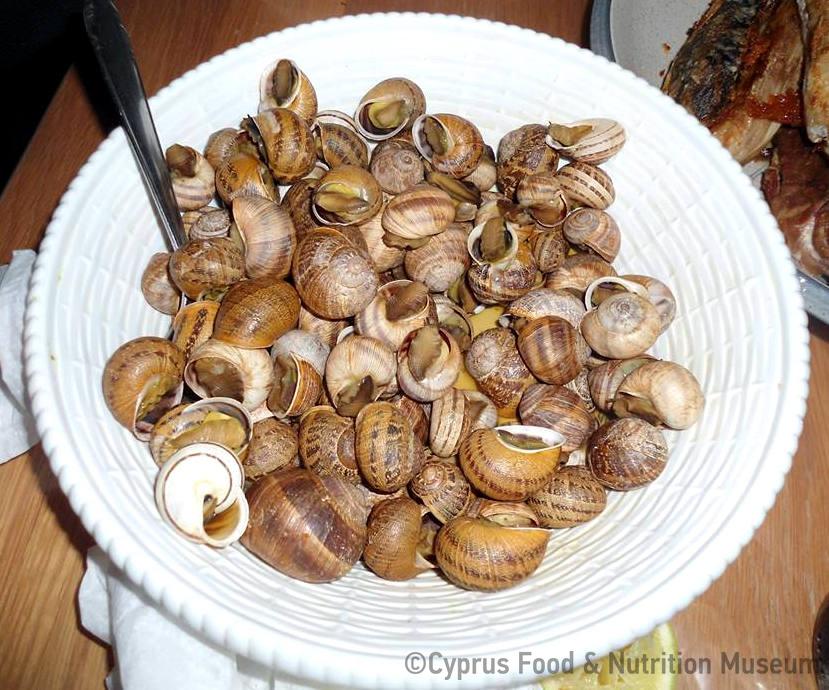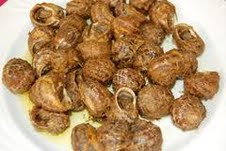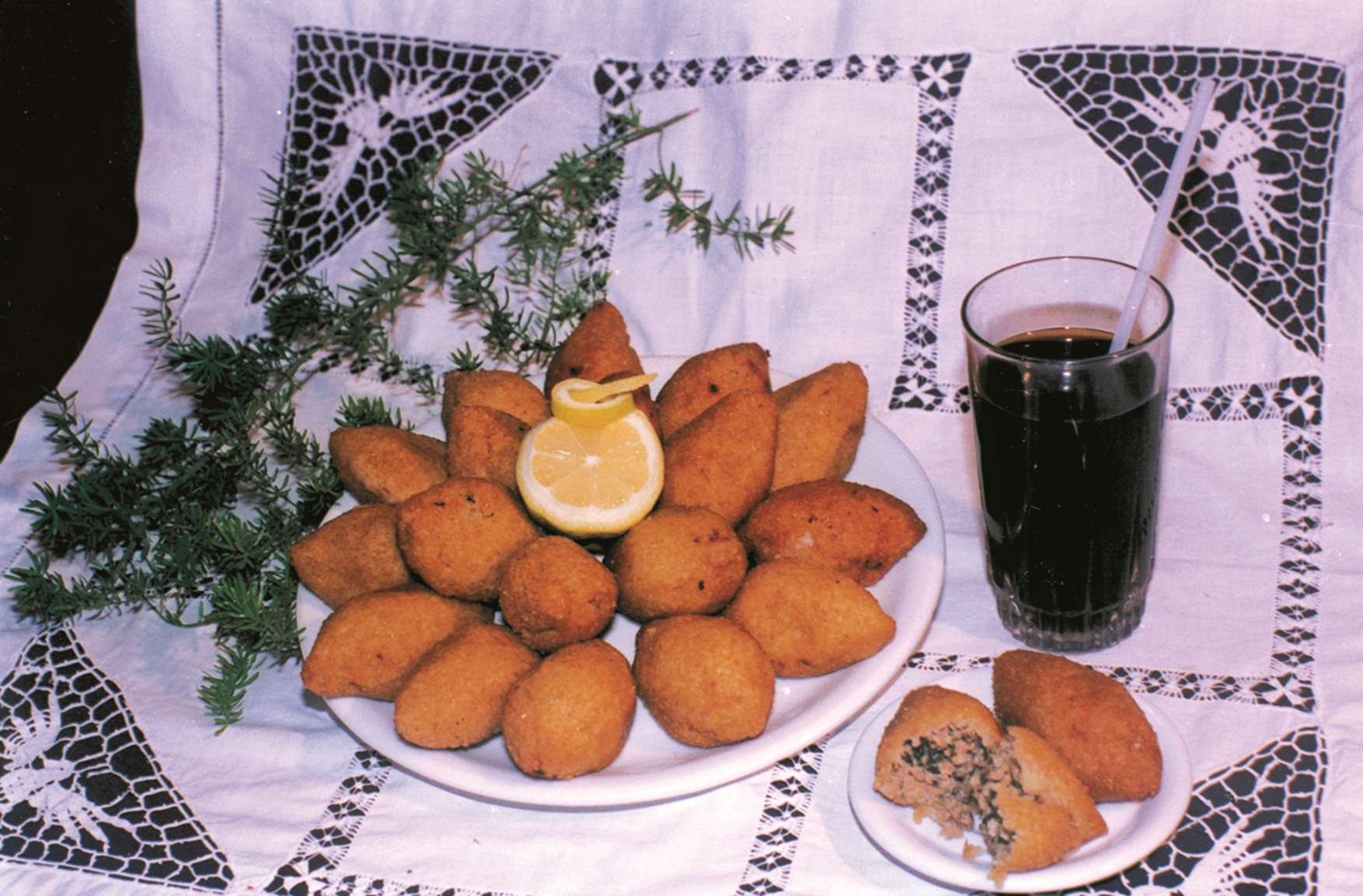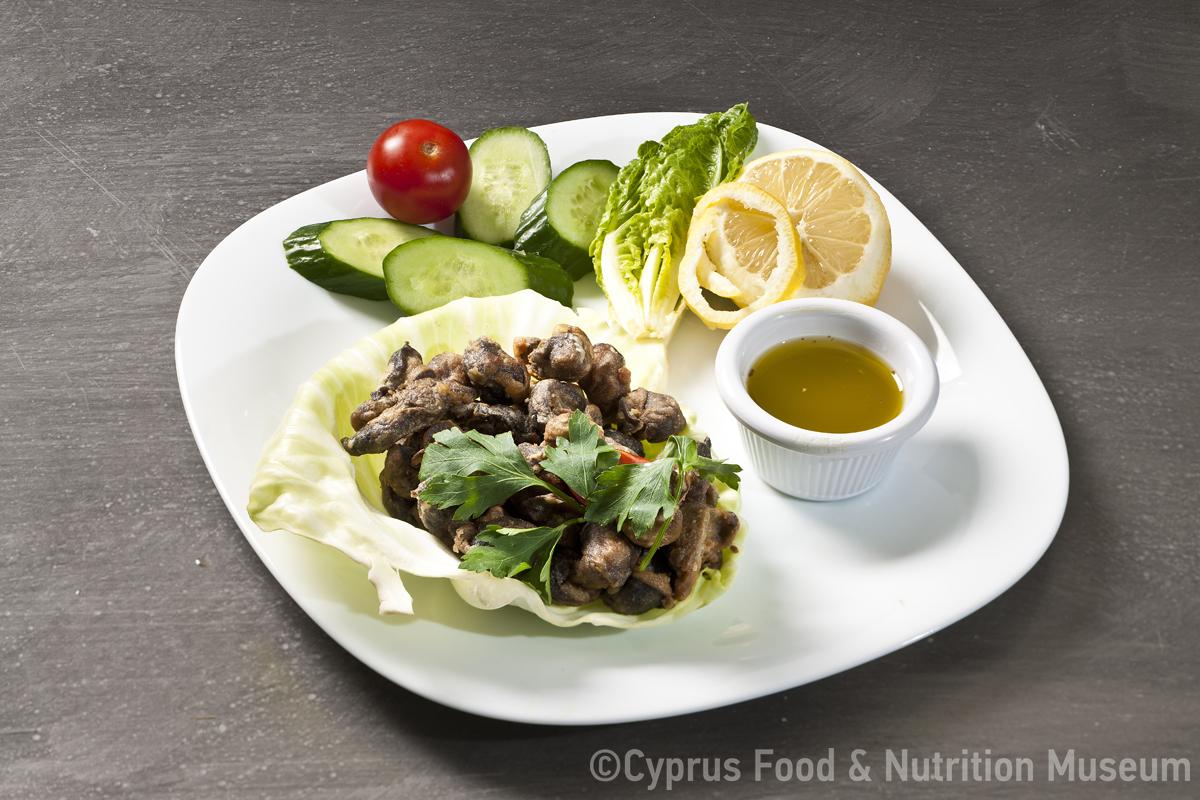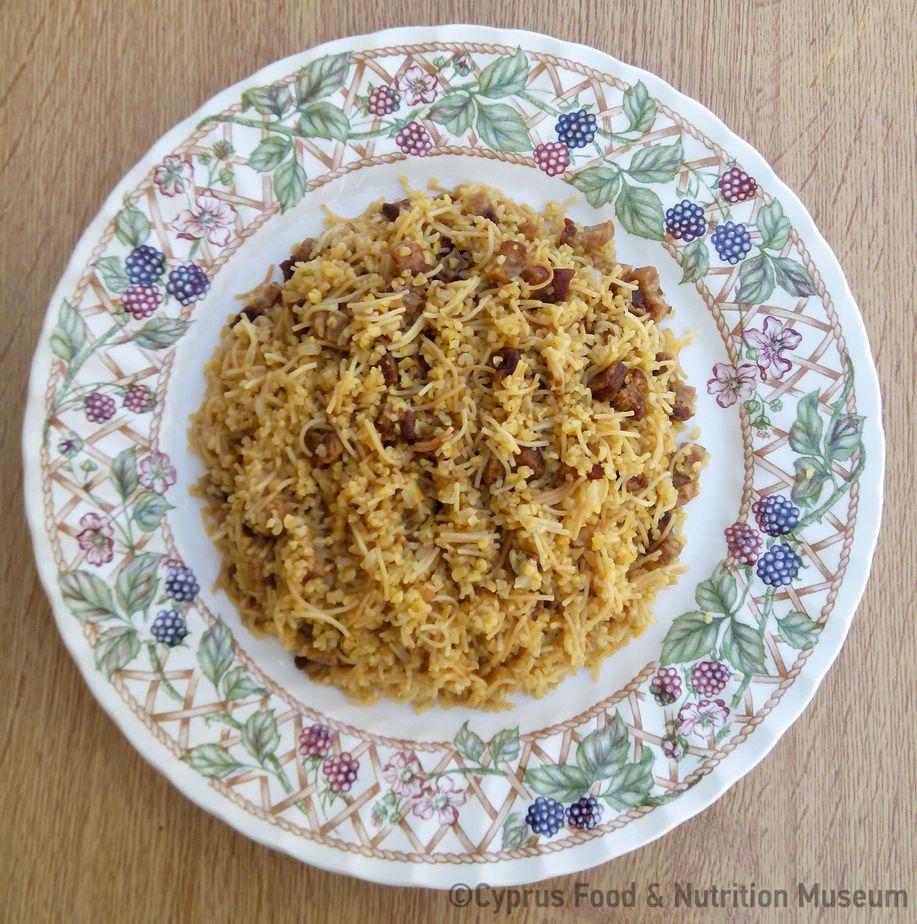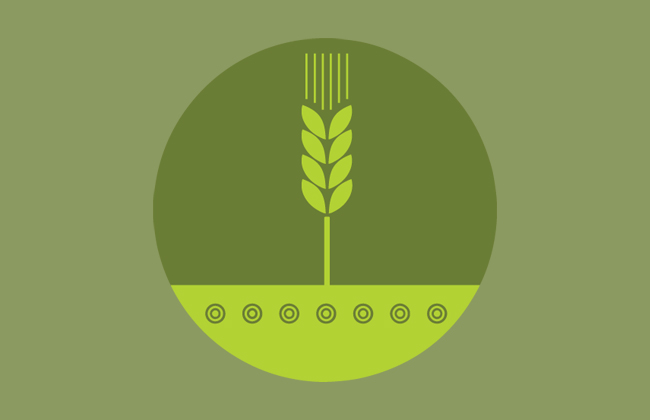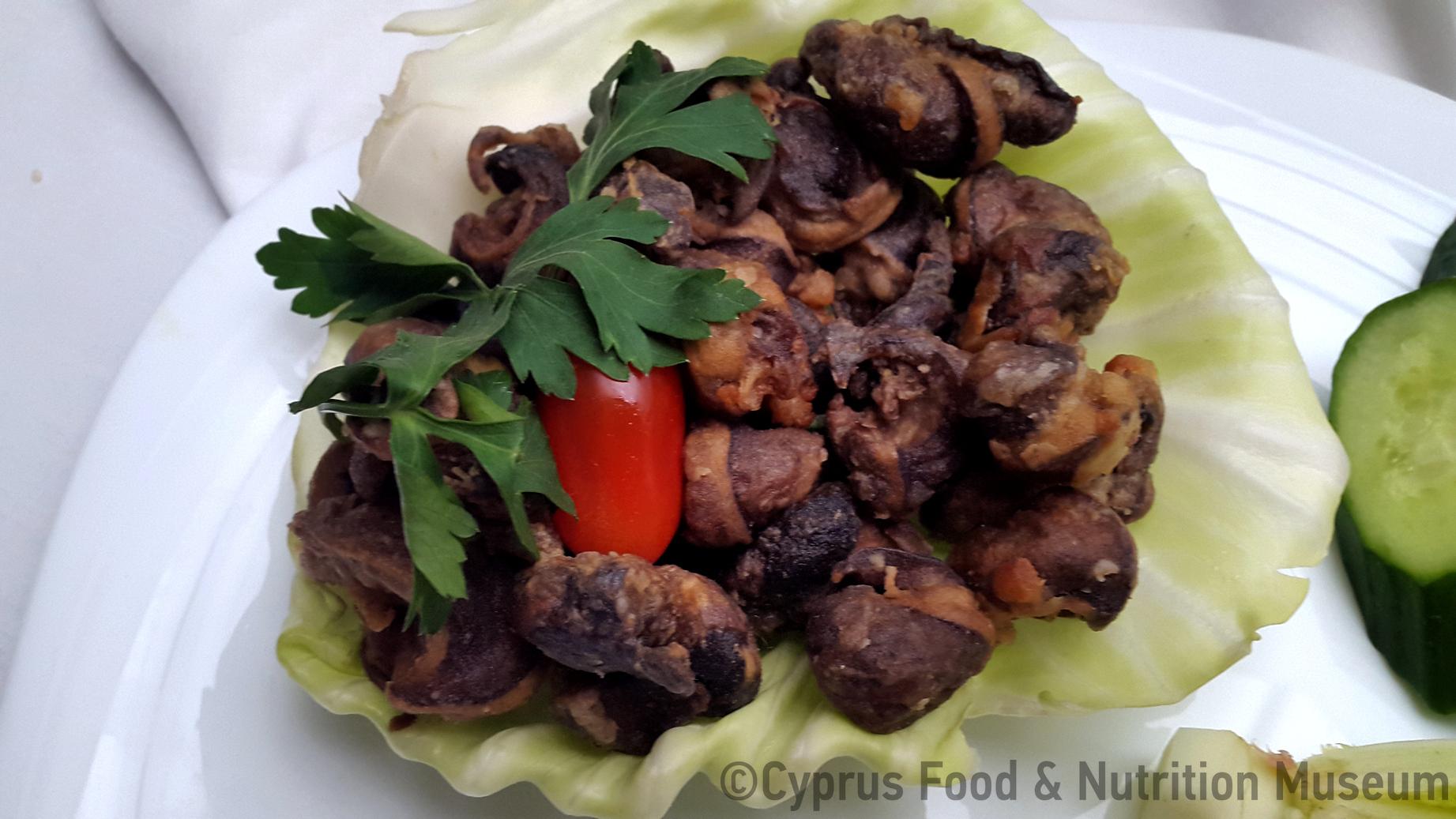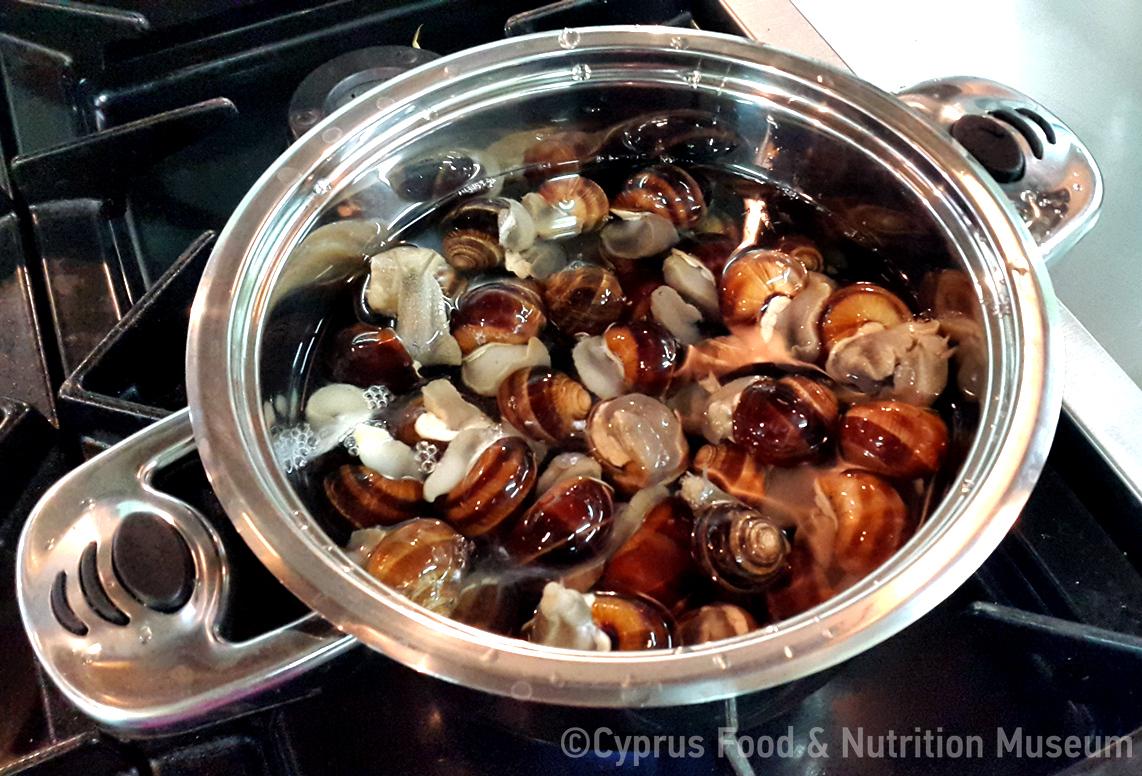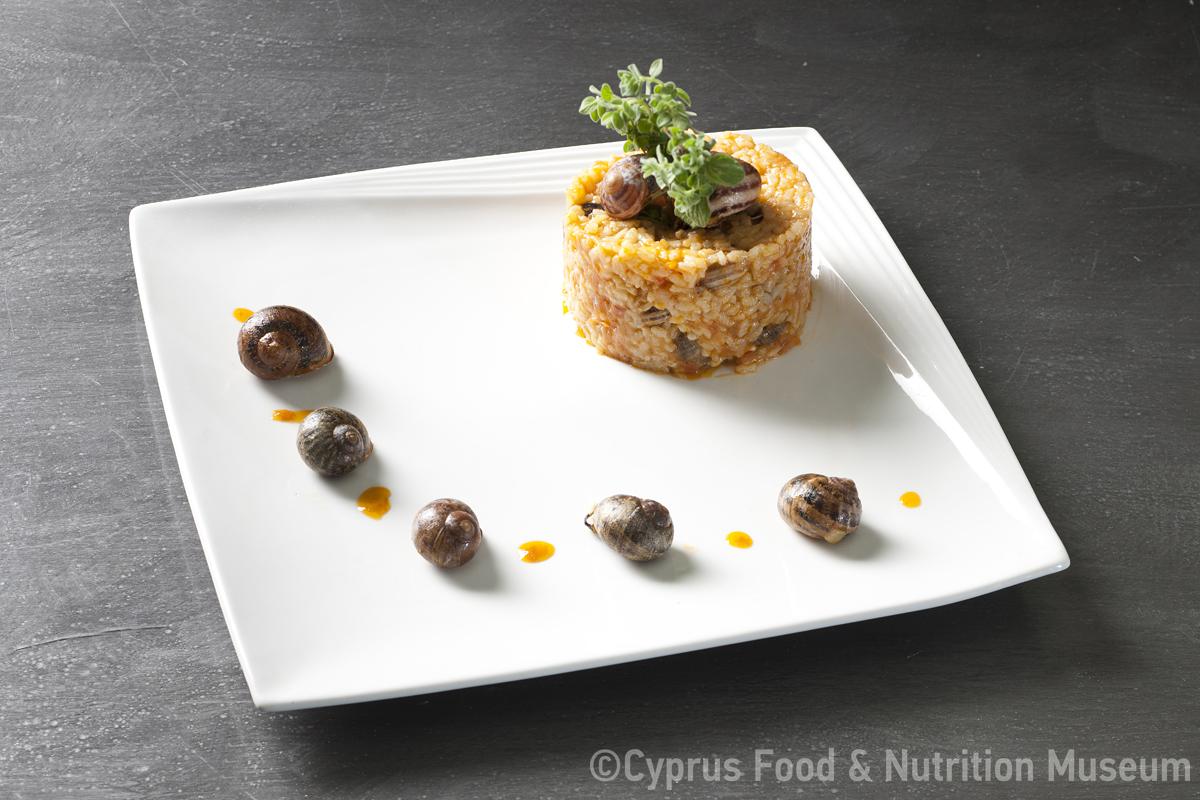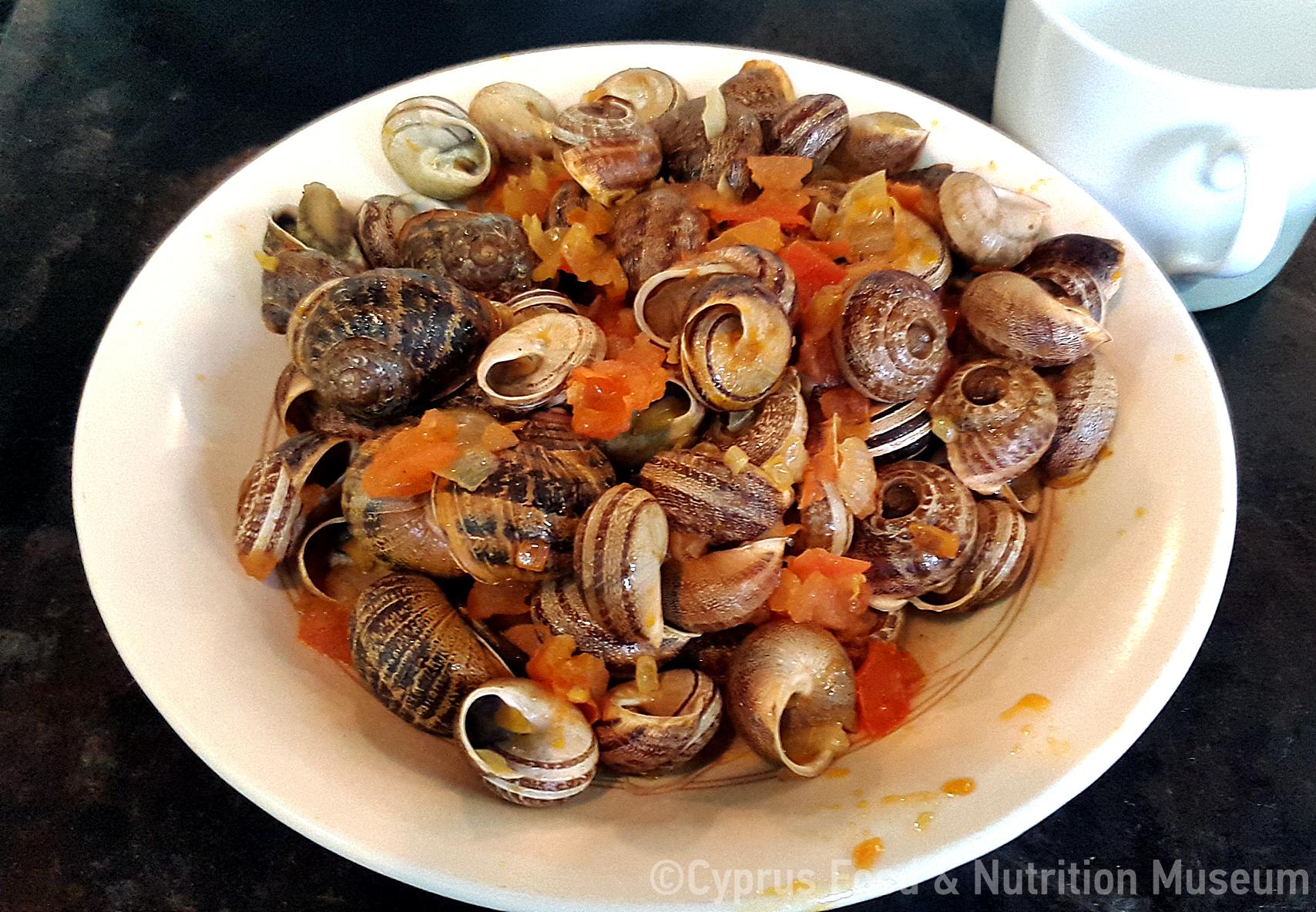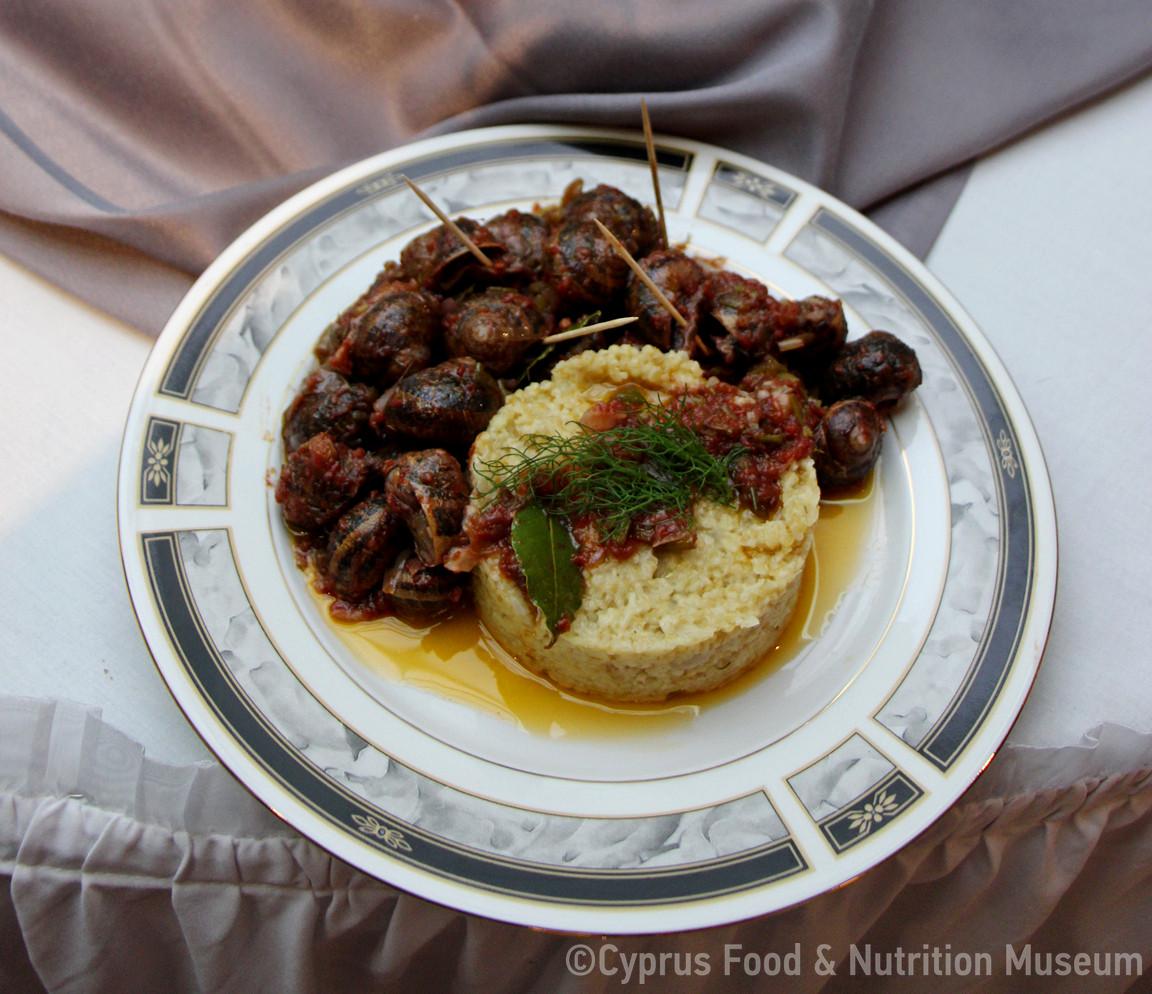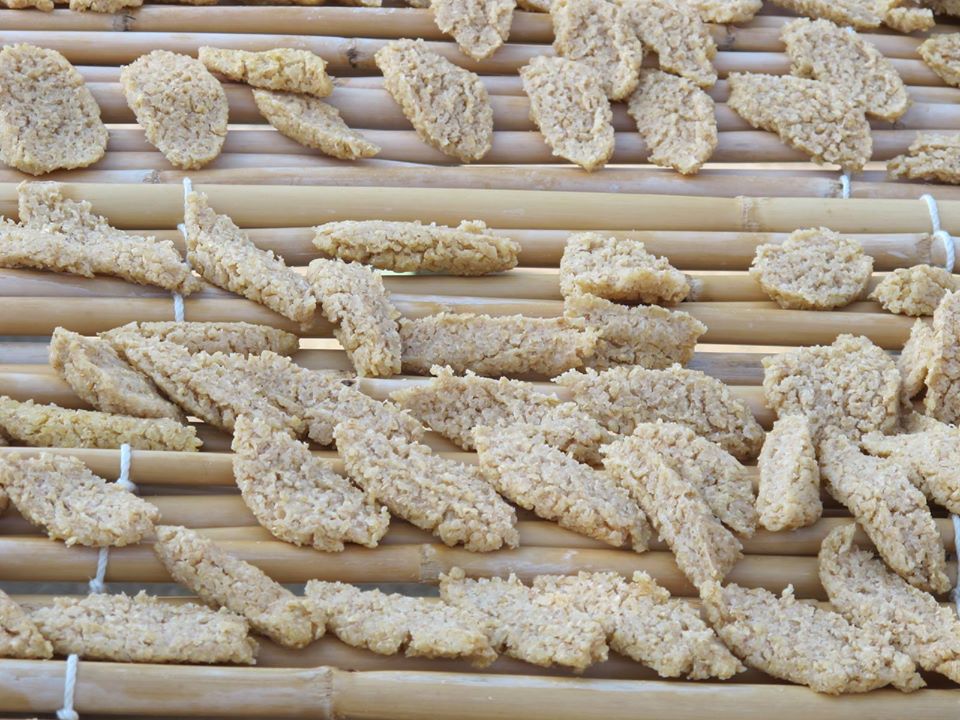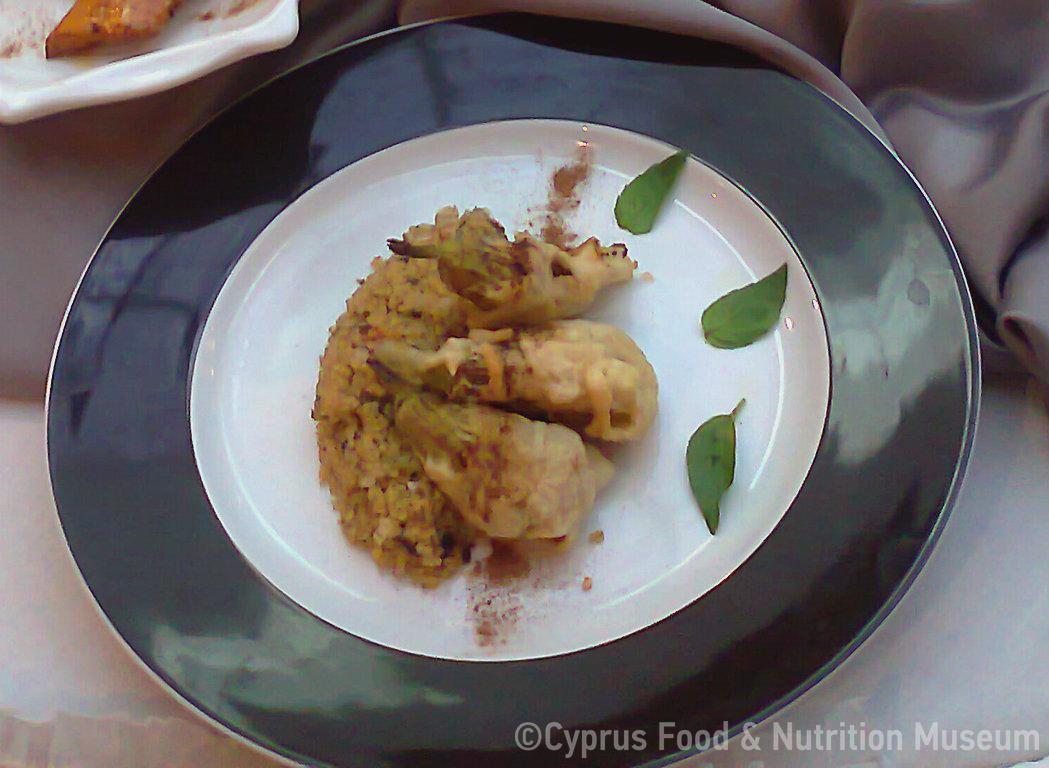A recipe for snails and Cyprus' favourite pilaf made of bulgur wheat.
Name - Recipe
Σαλιγκάρια με πιλάφι πλιγούρι.
Snails
1 plate of chopped tomatoes
3 glasses of water
1 1/2 glass of bulgur wheat
Olive oil
Rinse the snails with water. Lightly rub the snails against each other and change the water 6-8 times until they are clean. Put them in a pot with cold water and boil them over low heat. Before the snails are cooked, remove them from the heat and use a knife to remove the back of the shell. Wash them and fry them in olive oil. Add the chopped tomatoes and stir until the tomatoes melt. Add 3 glasses of hot water and once the water boils, add the bulgur. Stir and turn off the heat. Cover the pot with a towel. When the bulgur has puffed up and no water is left in the pot, the dish is ready. (Katzi 2000)
Boiling.
Frying.
Vermicelli may be added before adding the tomatoes, let it brown and then add all the other ingredients. Rice may be used instead of bulgur, but it requires longer to cook ( Katzi 2000).
Functional and symbolic role
Snails were consumed mainly during fasting periods (Katzi 2000).
Additional information and bibliography
Cypriots collected snails in the first month of spring, when there was humidity, but also after the first rains in autumn (Katzi 2000).
Katzi, M. (2000). "The food that nature gave us", Λαογραφική Κύπρος, 30(50), 104-110.
Demetra Dimitriou

